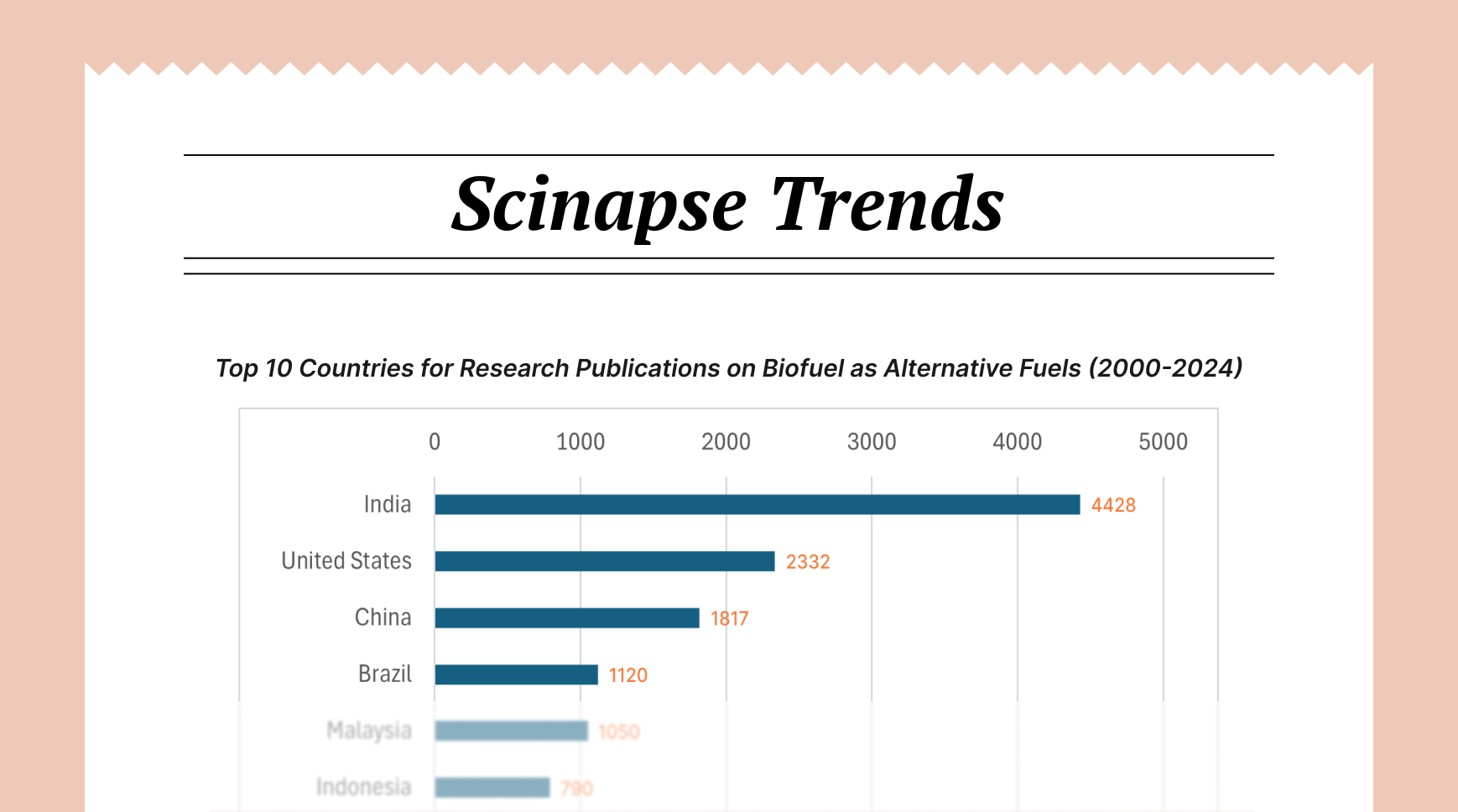Literature Reviews for Emerging Research Fields: Challenges and Solutions

Conducting a literature review in an established field follows relatively clear pathways—researchers can identify seminal works, trace theoretical developments, and draw upon well-defined methodological traditions. But what happens when you're tasked with reviewing literature in an emerging field where the research landscape resembles a frontier more than a well-mapped territory? This article explores the unique challenges of literature reviews in nascent research areas and provides practical solutions for researchers navigating these exciting but complex scholarly spaces.

What Makes Emerging Fields Different for Literature Review
Emerging research fields are characterized by several distinctive features that complicate the literature review process:
1- Terminological Fluidity
In established disciplines, key terms have stable, widely accepted meanings. Emerging fields, by contrast, often feature:
- Multiple competing terms for the same concepts
- Evolving definitions that change as the field develops
- Terms borrowed from different disciplines with varying connotations
- Neologisms that haven't yet achieved consensus acceptance
This semantic instability makes systematic searching particularly challenging, as keyword-based approaches may miss relevant literature using alternative terminology.
2- Scattered Publication Venues
Research in emerging fields typically spreads across:
- Journals from multiple "parent" disciplines
- Conference proceedings, which often lead to journal publications in fast-moving fields
- Preprint servers and other informal dissemination channels
- Industry white papers and reports outside traditional academic publishing
This dispersal means comprehensive reviews cannot rely on a small set of core journals but must cast a much wider net across publication types and disciplines.
3- Methodological Heterogeneity
Without established methodological traditions, emerging fields often feature:
- Experimental methods borrowed from various disciplines
- Novel methodological approaches are still being validated
- Inconsistent reporting standards and research protocols
- Variable quality criteria as the field establishes its standards
This variety makes quality assessment and methodological comparison particularly challenging.
4- Rapidly Evolving Knowledge Base
Emerging fields change quickly, with:
- Foundational assumptions are being regularly challenged
- New subfields are emerging as the research progresses
- Theoretical frameworks developing in real-time
- Today's cutting-edge is becoming tomorrow's outdated approach
This rapid evolution means literature reviews can become outdated quickly and requires researchers to think dynamically about knowledge development.
Practical Solutions for Effective Literature Reviews in Emerging Fields
Despite these challenges, researchers can employ several strategies to produce valuable literature reviews in emerging fields:
1. Adopt Flexible Search Strategies
Traditional keyword searches often fail to capture the terminological diversity of emerging fields. Instead:
- Use iterative search approaches: Begin with known terms, then expand your search vocabulary based on terms discovered in the initial literature
- Implement citation chaining: Follow both backward references and forward citations to identify literature clusters
- Employ semantic search tools: Utilize AI-powered academic search engines that can identify conceptually related work beyond keyword matching
- Consult with experts: Identify researchers active in the field who can suggest "hidden" literature that might use unexpected terminology
For example, a researcher reviewing literature on blockchain applications in supply chain management might start with those specific terms, but through iterative searching, discover relevant literature using terms like "distributed ledger technology," "provenance tracking," or "digital twins"—terms that might not appear in initial search strategies.
2. Expand Your Definition of "Literature"
In emerging fields, valuable insights often appear outside traditional academic publications:
- Include grey literature: Technical reports, working papers, and white papers often contain cutting-edge ideas
- Incorporate conference proceedings: In fast-moving fields, conferences often showcase ideas years before journal publication
- Consider digital-first publications: Blog posts by leading researchers, online-only journals, and digital repositories may contain significant contributions
- Evaluate commercial research: In applied emerging fields, industry often produces valuable research that academics should acknowledge
A researcher reviewing literature on quantum machine learning, for example, would be remiss to exclude technical reports from quantum computing companies, proceedings from specialized workshops, or preprints that haven't yet completed peer review but contain significant advances.
3. Develop Custom Quality Assessment Frameworks
Standard quality assessment tools may not apply well to emerging research. Instead:
- Adapt existing quality frameworks from related established fields
- Focus on the transparency of methods and reasoning rather than adherence to field-specific standards
- Consider multiple quality dimensions, including theoretical contribution, methodological innovation, and practical application
- Acknowledge methodological experimentation as sometimes necessary in new fields
For a literature review in an area like psychedelic-assisted therapy, this might mean evaluating studies not just on traditional measures like sample size or randomization, but also on innovation in protocol development, ethical considerations specific to the intervention, and integration of diverse knowledge traditions.
4. Structure Reviews to Highlight Development Patterns
Rather than organizing by findings alone, structure your review to illuminate how the field is evolving:
- Map intellectual lineages: Show how ideas have developed from parent disciplines
- Identify emerging consensus areas: Highlight where convergence is occurring despite methodological diversity
- Recognize competing paradigms: Frame areas of disagreement as productive tension driving the field forward
- Forecast development trajectories: Use current patterns to suggest future research directions
A review of social robotics literature, for instance, might trace how the field draws from both engineering and social psychology traditions, identify emerging design principles that cross different application domains, and highlight competing philosophies about human-robot interaction that are generating productive research questions.
5. Embrace Interdisciplinary Perspectives
Emerging fields typically sit at the intersection of multiple disciplines:
- Integrate theoretical frameworks from different disciplinary traditions
- Acknowledge methodological tensions when disciplines with different epistemological foundations meet
- Highlight translation challenges in terminology and concepts across disciplines
- Identify integration opportunities where disciplines can mutually enhance understanding
A literature review on environmental microplastics might need to integrate toxicology literature, polymer science, ecosystem modeling, and public health perspectives, acknowledging the different approaches each field brings while identifying areas where interdisciplinary collaboration is yielding new insights.
6. Use Technology Strategically
Modern tools can help manage the complexity of emerging field reviews:
- Leverage AI-powered literature analysis tools that can identify concept clusters and research trends
- Implement specialized reference management software that permits flexible tagging and categorization
- Create visual knowledge maps to represent complex interdisciplinary relationships
- Set up automated alerts to capture new publications in rapidly evolving areas
The Value Proposition of Emerging Field Literature Reviews
Despite their challenges, literature reviews in emerging fields offer unique value to the scholarly community. They:
- Accelerate field development by synthesizing scattered knowledge
- Build intellectual bridges between contributing disciplines
- Establish conceptual foundations for future research
- Identify productive methodological innovations that deserve wider adoption
- Create a common language to facilitate scholarly communication
Rather than viewing the challenges of reviewing emerging field literature as obstacles, researchers should recognize them as opportunities to shape scholarly discourse at a formative stage. By adopting flexible approaches to searching, embracing diverse literature types, developing appropriate quality frameworks, structuring reviews developmentally, incorporating interdisciplinary perspectives, and leveraging technology, researchers can create literature reviews that not only synthesize current knowledge but actively contribute to the field's evolution.
In this way, literature reviews in emerging fields become more than passive summaries—they serve as critical navigational tools that help researchers chart a course through exciting but uncharted intellectual territory.
Author: Uttkarsha B
- AI-Ethicist and STM Research & Publishing Expert
Never re-search again.
Scinapse is made by researchers for researchers.
Join the next generation of research at ⏯️ https://scinapse.io/
Pluto Labs
Pluto Labs helps researchers focus on their research by improving several inefficiencies in the academic research process. We offer data-driven insights from academic papers, allowing users to easily obtain review-level results for their desired range of papers.
https://pluto.im/





Comments ()